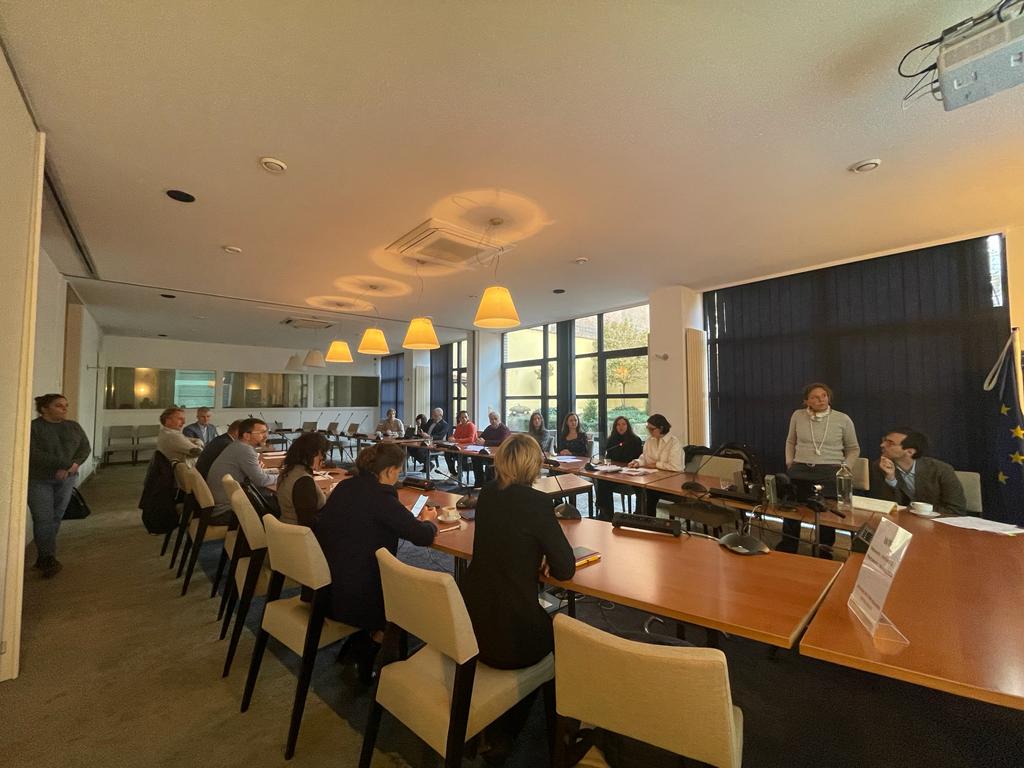The UCORD delegation, composed of representatives from Ukraine’s Ministry of Economy, Ministry of Communities, Territories and Infrastructure, along with various Oblast Regional Development Agency representatives. The study tour aimed to provide the delegation with profound insights into European Commission policies and tools for Cohesion and Innovation, as well as a nuanced understanding of Regional Development Agencies (RDAs) and their role in Smart Specialisation Strategies.
The tour commenced with a warm welcome at the House of Province of Genderland, featuring discussions on 'Smart Cities and Regions' with the regional minister. A visit to Arnhems Buiten, an industrial park on Energy Innovations, added depth to the understanding of regional development. Insights into East Netherlands, regional authorities, and their programming activities were presented by Ellen Mulder-Metselaar, Director of International Affairs. On day 2 of the visit, the focus shifted to innovation and investment tools, with discussions featuring ROM-Netherlands. Representatives highlighted various funds, enriching the participants' understanding of investment dynamics. The day concluded with an analysis of OOST NL's budget composition and turnover. On the third day of the visit, EURADA Director, Roberta Dall’Olio, provided a comprehensive overview of development agencies, funding sources, and European policies. Engaging case studies delved into successful regional initiatives, emphasising Smart Specialisation Strategy Implementation tools. Meetings with the Committee of the Regions and DG REGIO explored multilevel governance principles and funding strategies. During the tour, the programme management team also had the chance to exchange insights with delegations from Art-Er, Igretec and the region of Emilia Romagna office in Brussels. Finally, crucial meetings with CIVEX, EISMEA, and DG GROW, unveiled impactful policies to support SMEs growth. Engagements with the European Association of Guarantee Institutions also shed light on innovative financial mechanisms.
The study tour yielded crucial insights and recommendations for enhancing regional development strategies. It emphasised the need for a governance approach rooted in human rights principles, fostering democratic standards and inclusive development in project implementation. Furthermore, the importance of adopting a diversified funding approach, exploring funding tools at various levels, was highlighted to enhance financial resilience. A valuable strategy was identified, drawing inspiration from successful regional initiatives, especially those highlighted in case studies. Implementing a multilevel governance framework was underscored to ensure coherence in project implementation by fostering coordination across administrative levels. Exploring and implementing innovative financial mechanisms for SME support, guided by insights from the European Association of Guarantee Institutions, was identified as a key avenue for enhancing financial accessibility. Additionally, integrating Smart Specialisation Strategies into project planning, aligning initiatives with the strengths and potential of target regions, was recommended. Establishing knowledge exchange platforms for ongoing collaboration between Ukrainian and European regions to facilitate continuous learning and engaging in policy advocacy initiatives, drawing on insights gained from discussions with European institutions, were identified as crucial components for informed and effective regional development.
The Study Tour provided a profound reflection on place-based policies and implementation tools for regional development within a multilevel governance dimension. The tour serves as a stepping stone for further collaboration, including internships and exchanges, deepening knowledge on smart specialisation implementation, funding systems, and organisational models of development agencies.
